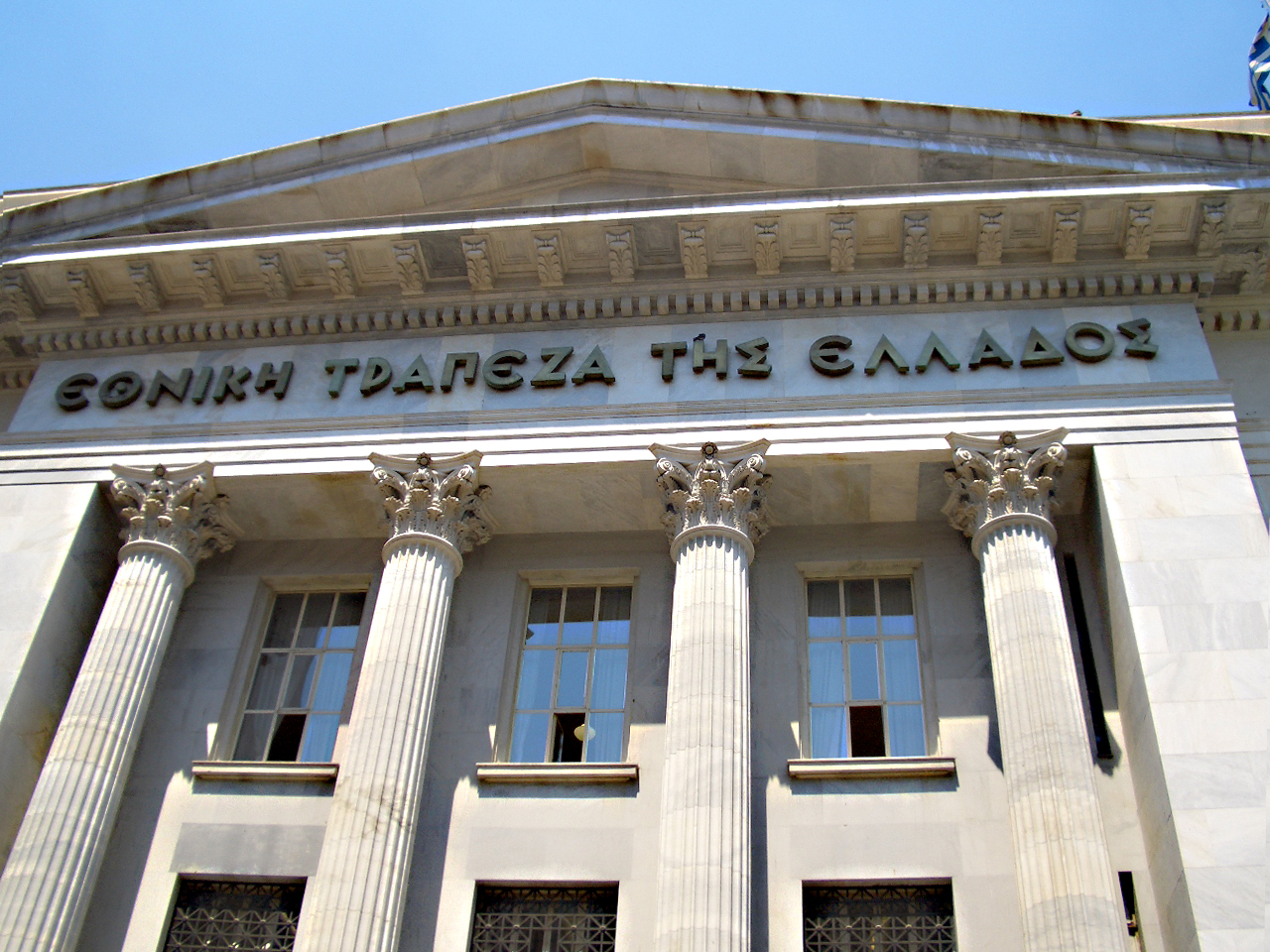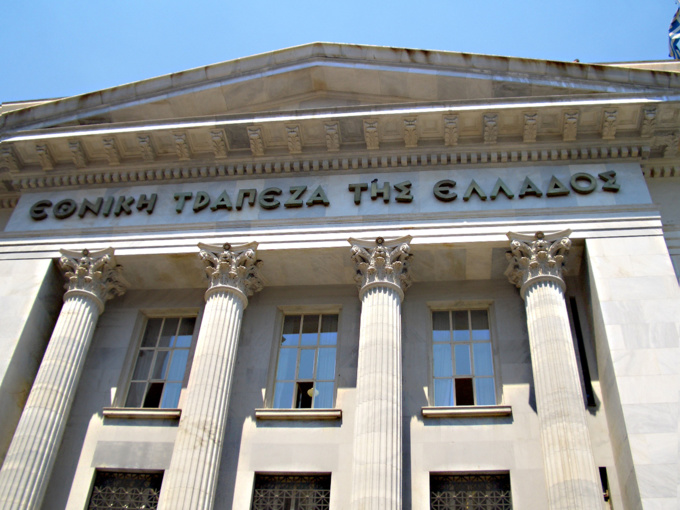The local population is trying to bypass the control over the movement of capital and is withdrawing money from the banking sector. "Bad" loans are a serious problem for Greek banks, a spokesman for the European Central Bank and former Secretary of the Bank of France Danièle Nouy, said. At the same time, she says that it’s too early to surrender to despair, but we need to save the industry. Representative of the ECB notes that, despite negative trends, the sector is improving the situation.
"The situation with Greek banks has improved noticeably over the past two years. In terms of capital adequacy and management, the main task now is to resolve the issue with non-performing loans," Nouy said. She stays optimistic and says that the problem in the banking sector will end after a new legislative framework is introduced. In her opinion, the main problem of the Greek banking sector is non-performing loans. The ECB recommends reducing them from 106 million euros to 40 million euros by the end of 2019.
Meanwhile, the Greek banking sector got back on track and local banks are rapidly losing their capital.
All this takes place amidst clashes between the IMF and German Finance Minister Schäuble. The situation is also fueled by a necessity of next bailout to Greece, and actions of the local population who use any convenient loophole to bypass capital controls and withdraw money from the banking sector.
The Central Bank of Greece reported in January that volume of bank deposits has been dropping for the second month in a row amid renewed fears about a possible bailout for the country. The population's deposits decreased by 16.3 billion euros, or 1.34%, to € 119.75 billion - a record low since November 2001. It is worth noting that in December the outflow of funds amounted to 3.4 billion euros, and that was a record fall after the last panic against the background of an incoming bailout in July 2015.
Given that anxieties only escalated in February, it is likely that we see yet another outflow of funds next month. It looks especially true since Greek unsecured loans make up a staggering 70% of total banking assets, and, moreover, only continue to grow. Since December, the Bank of Greece has stopped considering 4.2 billion euro deposits held by the Loans & Consignment Fund, and another 2.1 billion euros in the Deposit Guarantee Fund as private sector deposits.
The last two months of capital flight completed a period of relative stability. In 2016, Greek banks faced a small inflow of deposits a year after the country received a third package of financial assistance to stay in the euro area. Local banks, for the most part insolvent, still depend on the central bank borrowing to fill their funding gaps. The gap between outstanding loans and deposits makes the banks rely on borrowing from the ECB and the Bank of Greece to close the gaps in financing.
From December 2015 to July last year, Greece's banking sector has faced an outflow of deposits worth 42 billion euros. Until the recent wave of capital outflow, the government eased restrictions by successfully reorganizing a number of banks and strengthening confidence in the banking system. According to the latest data, the situation with the outflow of deposits in the near future may change.
Volume of funds withdrawn from deposits is not subject to restrictions thanks to mitigation of capital controls. This, of course, assumes that the upcoming confrontation among the three creditors will end peacefully. If the outflow continues, Greece will again return to the front pages of the newspapers and will demand a fourth package of financial assistance by mid-spring, given looming debt repayment in July 2017.
source: reuters.com
"The situation with Greek banks has improved noticeably over the past two years. In terms of capital adequacy and management, the main task now is to resolve the issue with non-performing loans," Nouy said. She stays optimistic and says that the problem in the banking sector will end after a new legislative framework is introduced. In her opinion, the main problem of the Greek banking sector is non-performing loans. The ECB recommends reducing them from 106 million euros to 40 million euros by the end of 2019.
Meanwhile, the Greek banking sector got back on track and local banks are rapidly losing their capital.
All this takes place amidst clashes between the IMF and German Finance Minister Schäuble. The situation is also fueled by a necessity of next bailout to Greece, and actions of the local population who use any convenient loophole to bypass capital controls and withdraw money from the banking sector.
The Central Bank of Greece reported in January that volume of bank deposits has been dropping for the second month in a row amid renewed fears about a possible bailout for the country. The population's deposits decreased by 16.3 billion euros, or 1.34%, to € 119.75 billion - a record low since November 2001. It is worth noting that in December the outflow of funds amounted to 3.4 billion euros, and that was a record fall after the last panic against the background of an incoming bailout in July 2015.
Given that anxieties only escalated in February, it is likely that we see yet another outflow of funds next month. It looks especially true since Greek unsecured loans make up a staggering 70% of total banking assets, and, moreover, only continue to grow. Since December, the Bank of Greece has stopped considering 4.2 billion euro deposits held by the Loans & Consignment Fund, and another 2.1 billion euros in the Deposit Guarantee Fund as private sector deposits.
The last two months of capital flight completed a period of relative stability. In 2016, Greek banks faced a small inflow of deposits a year after the country received a third package of financial assistance to stay in the euro area. Local banks, for the most part insolvent, still depend on the central bank borrowing to fill their funding gaps. The gap between outstanding loans and deposits makes the banks rely on borrowing from the ECB and the Bank of Greece to close the gaps in financing.
From December 2015 to July last year, Greece's banking sector has faced an outflow of deposits worth 42 billion euros. Until the recent wave of capital outflow, the government eased restrictions by successfully reorganizing a number of banks and strengthening confidence in the banking system. According to the latest data, the situation with the outflow of deposits in the near future may change.
Volume of funds withdrawn from deposits is not subject to restrictions thanks to mitigation of capital controls. This, of course, assumes that the upcoming confrontation among the three creditors will end peacefully. If the outflow continues, Greece will again return to the front pages of the newspapers and will demand a fourth package of financial assistance by mid-spring, given looming debt repayment in July 2017.
source: reuters.com



















